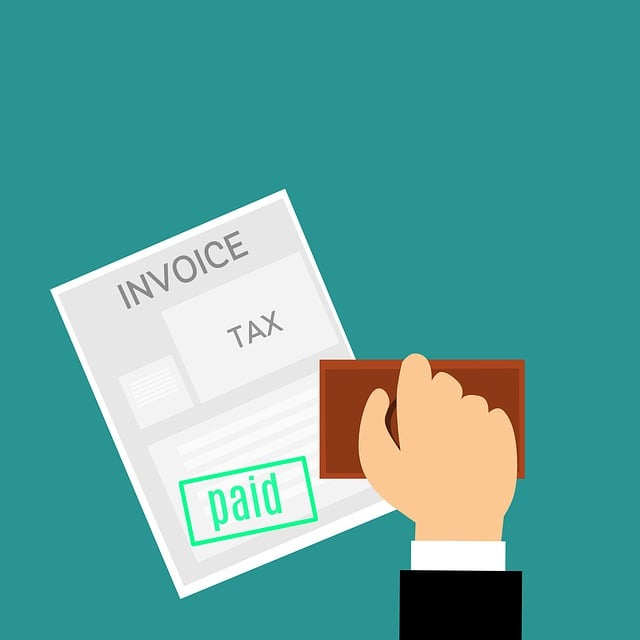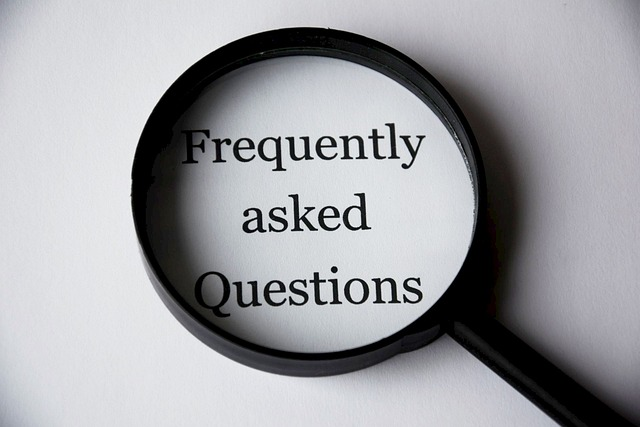What is a Small Business Accountant?

A small business accountant is an essential financial professional who provides crucial advice and manages financial records. They handle various responsibilities, including managing business taxes, overseeing payroll, and conducting audits to ensure compliance with tax laws.
Accountants help business owners navigate complex financial matters and make informed decisions about their company’s finances. They also provide valuable insights into improving cash flow management, identifying cost-saving opportunities, and developing effective budgeting strategies.
Why do Small Businesses need an Accountant?

Here are a few reasons why hiring an accountant for your small business is crucial.
Navigating Tax Laws
Small businesses rely on accountants to navigate complex tax laws and ensure compliance. For instance, when a small business needs to file taxes or apply for tax deductions, an accountant can provide expert guidance to avoid errors and penalties.
Accountants help small business owners manage financial records, ensuring that all transactions are accurately recorded. This is crucial for tracking income, expenses, and profits, which helps the business make informed financial decisions.
Financial Management
Accountants can save small businesses time and money by handling essential tasks like payroll, taxes, and auditing. By outsourcing these responsibilities to professionals, small business owners can focus on growing their companies without worrying about the complexities of financial management.
Accountants also assist in managing costs effectively while maximizing profits. They analyze financial data to identify areas where the company can cut expenses or invest resources more efficiently. Moreover, they provide valuable advice on meeting the needs of clients and employees through sound financial strategies.
How much does an Accountant Cost for Small Business?

An accountant’s costs can vary significantly based on several factors. On average, small businesses can expect to pay between $100 and $300 per hour for accounting services. However, some accounting firms may offer a monthly fee structure ranging from $1,000 to $10,000, depending on the specific services the business requires.
The annual cost of hiring an accountant for essential accounting services typically falls within the range of $500 to $5,000 for small businesses. These costs are influenced by various elements, such as the size of the company and the complexity of its financial records.
For instance, a small business with a few employees and straightforward financial transactions might fall at the lower end of this spectrum. A larger company with more complex financial activities could incur higher expenses due to the increased workload and expertise needed.
How do I hire an Accountant for my Small Business?

First, decide if you’re hiring an in-house accountant or looking to contract an accounting firm or an outside accountant. This decision impacts your research and budget.
Here are some essential steps for hiring a small business accountant.
Define Your Business’s Accounting Needs: Consider whether you need help with bookkeeping, tax services and preparation, financial advice, or payroll. Assessing your specific requirements will guide you in finding the right accountant for your small business.
Conduct Thorough Research on Potential Accountants: Look into their qualifications, experience working with small businesses like yours, and client reviews. This step ensures that you find an accountant who understands the unique challenges of a small business and has a track record of offering financial advice and work.
Interview Potential Candidates: Assess their compatibility with your business. During the interviews, ask about their experience working with small businesses and how they can help your organization grow financially.
Determine the Costs & Evaluate Your Budget: You want to ensure your business can afford the costs, which can include hourly rates, fees, or monthly retainers.
Make Your Decision: Once you’ve done your due diligence, decide on the accountant or accounting firm and finalize the agreement.
What are the advantages and disadvantages of Hiring an Accountant?
Here are the advantages and disadvantages of hiring an accountant for small business.
Benefits of Hiring an Accountant
Accountants provide valuable financial advice to help you make informed decisions about your business’s finances. For example, they can advise on how to allocate funds for growth or manage cash flow effectively. These professionals are skilled at maintaining accurate financial records, ensuring all transactions are properly documented and organized.
Having an accountant on board can save you time and reduce stress associated with managing your business’s finances and taxes. They handle tasks like preparing financial statements, filing taxes, and overseeing payroll so that you can focus on running the day-to-day operations of your business.
Furthermore, accountants play a crucial role in ensuring compliance with tax laws, which reduces the risk of audits and penalties. By staying updated with tax regulations and deadlines, they help minimize potential legal issues related to taxation.
Drawbacks of Hiring an Accountant
Despite these advantages, the cost of hiring an accountant may be a significant disadvantage for some small businesses. The fees charged by accounting firms or professionals might strain the finances of companies with limited resources or those in their early stages.
In such cases, small business owners must conduct a cost-benefit analysis before deciding whether to hire an accountant. While it may seem like an additional expense initially, considering the time saved and potential errors avoided could justify the investment.
Hiring an Accountant Pros & Cons

Pros:
- Expertise in tax laws and regulations.
- Time-saving for business owners.
- Reduction of potential errors in financial records.
- Access to financial advice and planning.
- Assistance with complex financial transactions.
Cons:
- Cost of hiring a professional service.
- Potential lack of personal involvement in financial management.
- Dependence on external expertise.
- Risk of miscommunication or misunderstandings.
- Limited control over financial decisions.
Frequently Asked Questions

Here are the most common questions about hiring an accountant for small business.
What fees and rates do Accountants charge for Small Businesses?

Accountants may charge small businesses based on hourly rates, flat fees, or a monthly retainer. The complexity of financial records, business taxes, and payroll can impact the accountant’s services and pricing structure.
Typical accounting fees include:
- Bookkeeping: $30-$50 per hour.
- Tax preparation: $150-$400 per return.
- Financial statement preparation: $500-$2,000.
- Payroll services: $50-$100 per month.
- Consulting services: $100-$300 per hour.
Some accounting firms may offer tiered pricing based on the size and needs of the small business. A smaller company with fewer employees and clients might be charged differently than a larger firm with more complex financial requirements.
Additional services such as auditing, financial advice, tax planning, and legal compliance may also influence the overall costs. For example, a small business owner seeking comprehensive financial advice in addition to standard bookkeeping services could lead to increased accounting costs.
How much should Small Business tax prep cost?

Small business tax prep costs can vary widely depending on factors such as the complexity of financial records, the tax preparer, and ever-changing tax laws. Hiring an accounting firm for tax preparation typically ranges from $500 to $5,000 annually for small businesses. The actual cost depends on various factors, including the size and complexity of the company’s finances.
Can I do my Small Business taxes myself?

While possible, it requires a good understanding of tax laws and financial records. Handling tax preparation independently can be time-consuming and complex. Moreover, any mistakes or errors could lead to audits and incur much more significant costs than if you hired an accountant.
How do I verify an Accountant’s credentials?

Look for professionals with expertise in auditing, tax laws, and providing sound financial advice. Consider their education and certifications. An accountant can be a:
- Certified Public Accountant (CPA).
- Certified Management Accountant (CMA).
- Certified Fraud Examiner (CFE).
- Master’s degree holder.
Consider working with a reputable accounting firm that specializes in assisting small businesses. These firms often have a track record of helping similar companies manage their finances effectively. You can also check the accountant’s history to ensure they have no record of malpractice or unethical behavior.
Look for references, recommendations, and reviews from other small business owners. This can provide valuable insights into an accountant’s ability and professionalism.
In addition to these factors, you should ensure that the accountant has small business accounting experience. This includes other business aspects such as managing payroll, understanding tax laws related to small businesses, and providing guidance on financial decisions that could impact your company’s growth.
Can Hiring an Accountant help my small business save money?

Yes, hiring a skilled accountant and tax professional can help identify potential tax deductions and improve financial efficiency. They may ultimately save your business money by leveraging their expertise in managing finances and minimizing tax liabilities.
Additional cost-saving efforts include:
- Managing accounting software.
- Providing valuable financial advice.
- Assisting in maintaining accurate financial records.
- Efficiently managing payroll and auditing.
Hiring an Accountant for Small Business – Final Thoughts

From navigating complex tax regulations to providing valuable financial insights, the right accountant can help your business significantly. As you consider hiring an accountant, weigh the cost against the potential savings and benefits they can bring.
Remember, it’s not just about the numbers; it’s about finding a partner who truly understands your business and has the expertise to support its growth. Now that you have a clearer picture of what to consider when hiring an accountant for your small business take the next step with confidence.
Contact us if you have more questions about small business accountants or to apply for a small business loan. Our alternative business funding experts can help your company find the best financing options to achieve its goals.













